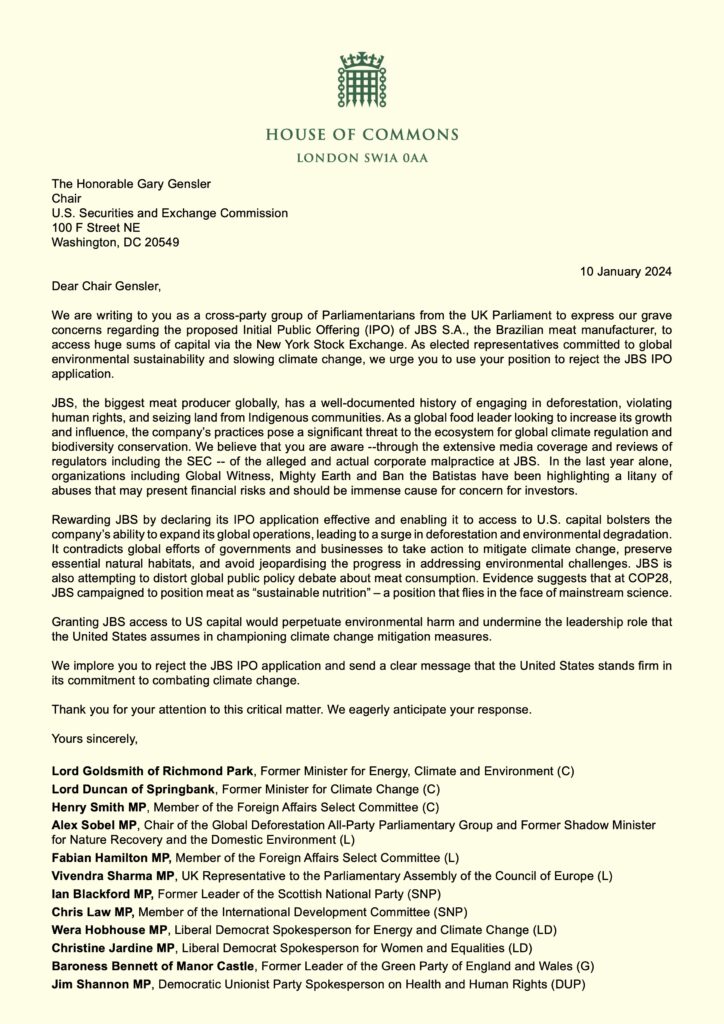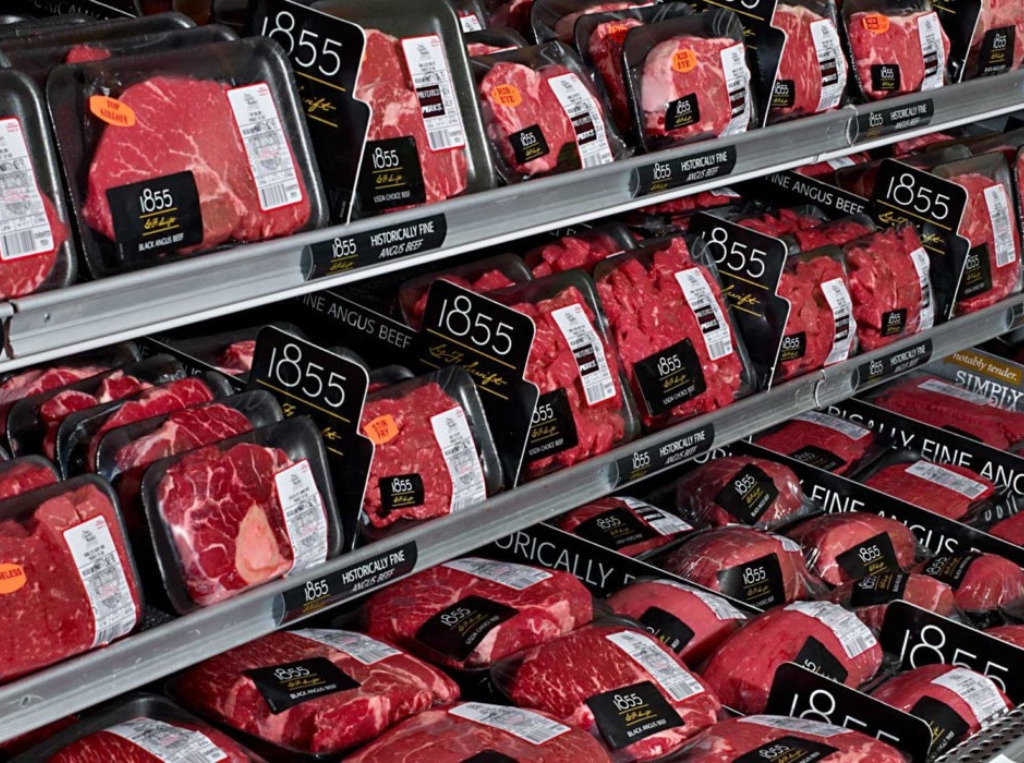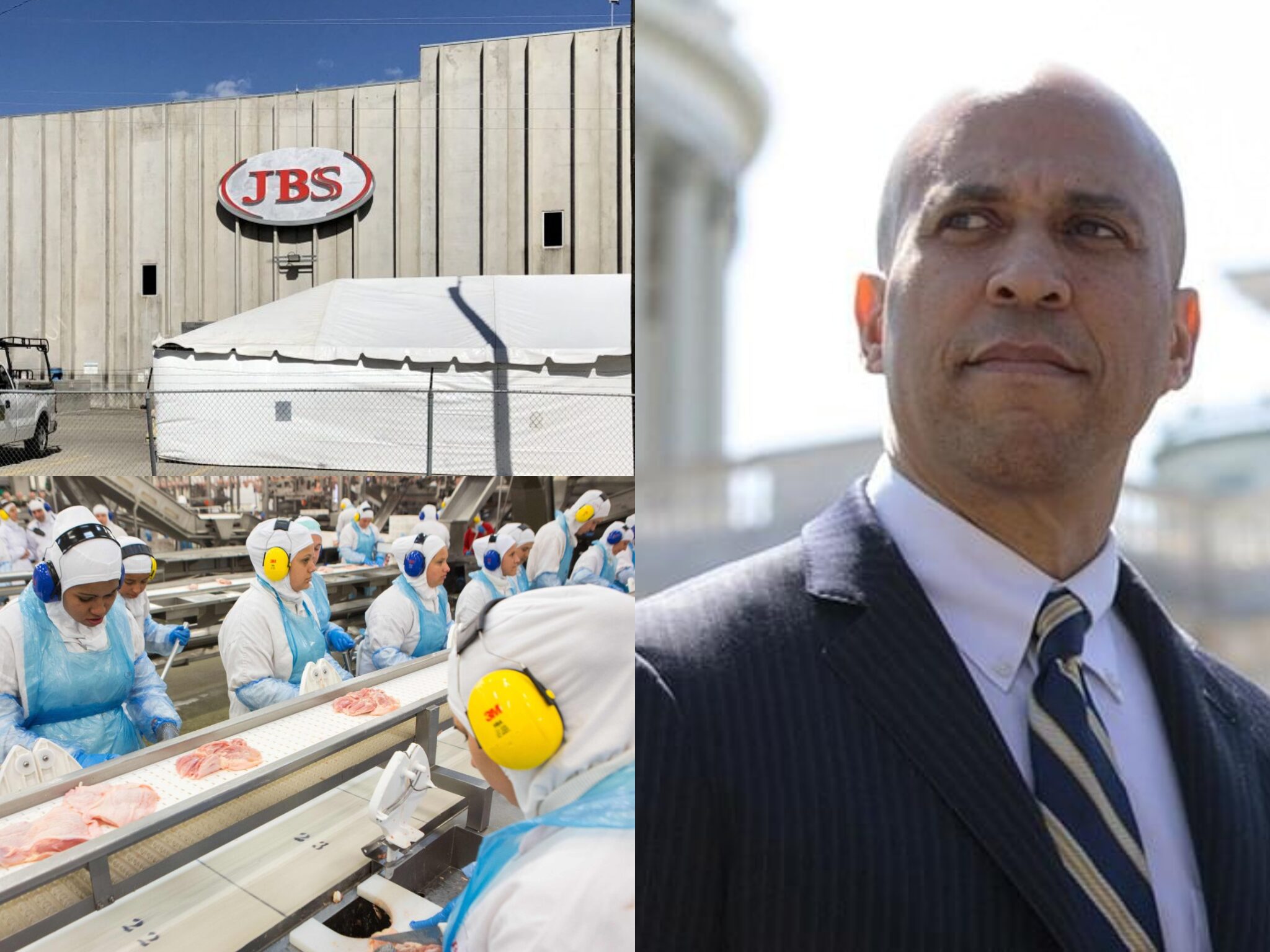JBS Backlash Goes Political as US & UK Lawmakers Ask SEC to Reject IPO Filing
7 Mins Read
The pushback against JBS’s plans to go public is no longer confined to just climate activists – politicians from the US and the UK are the latest to air their concerns in letters to the US Securities and Exchange Commission (SEC), asking the federal body to reject the Brazilian meat giant’s application.
As JBS, the world’s largest meat producer, prepares to go public on the New York Stock Exchange and the São Paulo-based B3 exchange, the number of voices repelling the move is growing. Now, legislators are involved on a global scale.
In two separate letters, 15 US senators and 13 UK MPs have raised their concerns to SEC chair Gary Gensler about the meatpacker’s planned move, which it says will reduce capital costs, generate greater returns for shareholders, and accelerate its capacity for diversification and growth into more value-added food products.
This isn’t the meat producer’s first IPO attempt: its previous efforts were precluded by a corruption scandal in 2017, and the Covid-19 pandemic. Now, JBS – which owns over 70 brands, operates in more than 190 countries and has a market cap of over $11.25B – is facing backlash towards its latest IPO push from climate activists and policymakers alike.
What the lawmakers are saying about the JBS IPO

Led by Senator Cory Booker, the US letter to the SEC highlighted JBS’s missteps over the last couple of decades, urging the investor protection watchdog to expose the company’s risks to potential shareholders, in terms of corruption, human rights abuses, monopolisation of the meatpacking market, and environmental risks.
“We urge the SEC to consider how JBS’s improper access to US capital markets might strengthen its market position, enhance its ability to engage in anticompetitive conduct, and adversely impact US farmers and ranchers,” read the letter. “Consistent with the SEC’s powers and responsibilities, should JBS fail to cure any such disclosure deficiencies, we would ask that the SEC decline to declare the company’s registration effective.”
Additionally, the politicians raised concerns about the structure of the proposed offering, which would “ensure JBS would be exempt from US laws” and allow the Batista family and JBS owners Joesley and Wesley to convert 100% of their Class A shares to Class B voting shares, versus 55% for minority shareholders.
The UK letter, also written in a grave tone, took a more blatant route, asking the SEC to reject the IPO application by JBS. “As a global food leader looking to increase its growth and influence, the company’s practices pose a significant threat to the ecosystem for global climate regulation and biodiversity conservation,” the MPs wrote.
Like their American counterparts, they too highlighted JBS’s “well-documented history of engaging in deforestation, violating human rights, and seizing land from Indigenous communities”: “Rewarding JBS by declaring its IPO application effective and enabling it to access to US capital bolsters the company’s ability to expand its global operations, leading to a surge in deforestation and environmental degradation.”
Why does JBS face such criticism?

So what has JBS done? For starters, as a meatpacking giant, its climate impact cannot be overstated. Between 2016 and 2021, it increased its greenhouse gas emissions by 51%, and its total emissions were 68 times higher than what it claimed. And while it broke ground on a $62M cultivated meat R&D facility in September last year, its scope 3 emissions were up by 5.66% annually, surpassing 71.1 million tonnes of CO2e.
The company has a “long history of misleading investors in its corporate filings by exaggerating environmental stewardship and downplaying other risks”, as the US senators explain. It faces an SEC whistleblower complaint for making inaccurate claims when selling around $3B worth of Sustainability Linked Bonds to American investors – it’s accused of violating multiple antifraud laws.
Plus, JBS is among the biggest drivers of deforestation in the Amazon, with its slaughterhouses in the region more than doubling between 2009 and 2020. “The company has made repeated claims that it will eliminate deforestation, but has not taken meaningful steps to do so, despite its direct knowledge of extensive deforestation in its supply chain,” the US letter reads, referencing a Senate deforestation investigation that said JBS was “turning a blind eye as parts of its supply chain burn down the Amazon”. In Europe, six major supermarkets boycotted JBS beef over its links to deforestation in 2021.
Then there’s the human rights abuses. Last year, it was involved in a child labour controversy, with allegations made against a Wisconsin cleaning company that said it employed more than two dozen minors to clean dangerous meatpacking plants for JBS across the US. The company estimates its current criminal exposure at $463.5M, with an additional $2.1B resting on ongoing civil, tax, and labour litigation claims. It has also been fined over a fatality at one of its facilities.
JBS has been accused of corporate malpractice too, having been involved in price-fixing schemes in the beef, poultry and pork markets. Over 12 years, it engaged in an extensive, international bribery corruption scheme in the US, with its holding company J&F Investimentos pleading guilty and agreeing to pay more than $256M for engineering an extensive political bribery effort in 2020, targeting 1,800 Brazilian government officials. The same year, the SEC fined J&F, and brothers Joesley and Wesley $27M for an extensive bribery scheme to acquire US meat producer Pilgrim’s Pride in 2009.
Can the SEC Ban the Batistas?

It’s these practices that prompted a coalition of environmental groups – including Rainforest Action Network, Mighty Earth, and World Animal Protection – to write a letter to the SEC last September, asking it to block JBS’s move to go public. Calling it the “biggest climate risk IPO listing in history”, they stated how there’s little transparency about the company’s 2040 net-zero plans, which had recently withdrawn labelling claims about this target after an ad review board found it “aspirational”.
In response to the UK’s letter, newly formed coalition Ban the Batistas said an IPO for JBS should be out of the question. The group had launched just before COP28 and highlighted JBS’s attempts to greenwash its climate record during the conference, calling its $8.7M investment in the Eastern Amazon Fund “a feeble attempt to mask its history of environmental harm and market dominance”, given its multibillion-dollar net worth.
“As JBS manoeuvres to become a public company on the NYSE, Ban the Batistas and many concerned groups around the world are calling for investors, banks, and regulators to withdraw their support for JBS’s plans to gain access to capital in the US markets,” said Ban the Batistas executive director Kimberly Spell. “Given the potential for increased financial, social, and environmental risks posed by the meat conglomerate’s operations and legacy of misconduct, we urge the investment community to ask the hard questions and demand fuller transparency from JBS about its true intentions.”
The UK MPs said JBS is “attempting to distort global public policy debate” about eating meat. “Evidence suggests that at COP28, JBS campaigned to position meat as ‘sustainable nutrition’ – a position that flies in the face of mainstream science,” their letter stated. “As a global food leader looking to increase its growth and influence, the company’s practices pose a significant threat to the ecosystem for global climate regulation and biodiversity conservation.
“It contradicts global efforts of governments and businesses to take action to mitigate climate change, preserve essential natural habitats, and avoid jeopardising the progress in addressing environmental challenges,” the British politicians continued, adding: “Granting JBS access to US capital would perpetuate environmental harm and undermine the leadership role that the United States assumes in championing climate change mitigation measures.”
In a statement sent to Green Queen, Glenn Hurowitz, CEO of Mighty Earth, said: “This JBS IPO is so dangerous for the markets and the environment that it’s managed to rally senators from across the ideological spectrum. It’s a rare company that can bring Republicans and Democrats together in today’s Washington, but JBS has done it.
“If JBS gains access to billions of dollars to expand its industrial meat operations, it would bring more deforestation, more market manipulation, more human rights abuses and more outsized climate pollution. The SEC should not allow this IPO to proceed.”
This story was updated on January 16 to add Mighty Earth’s quote.




